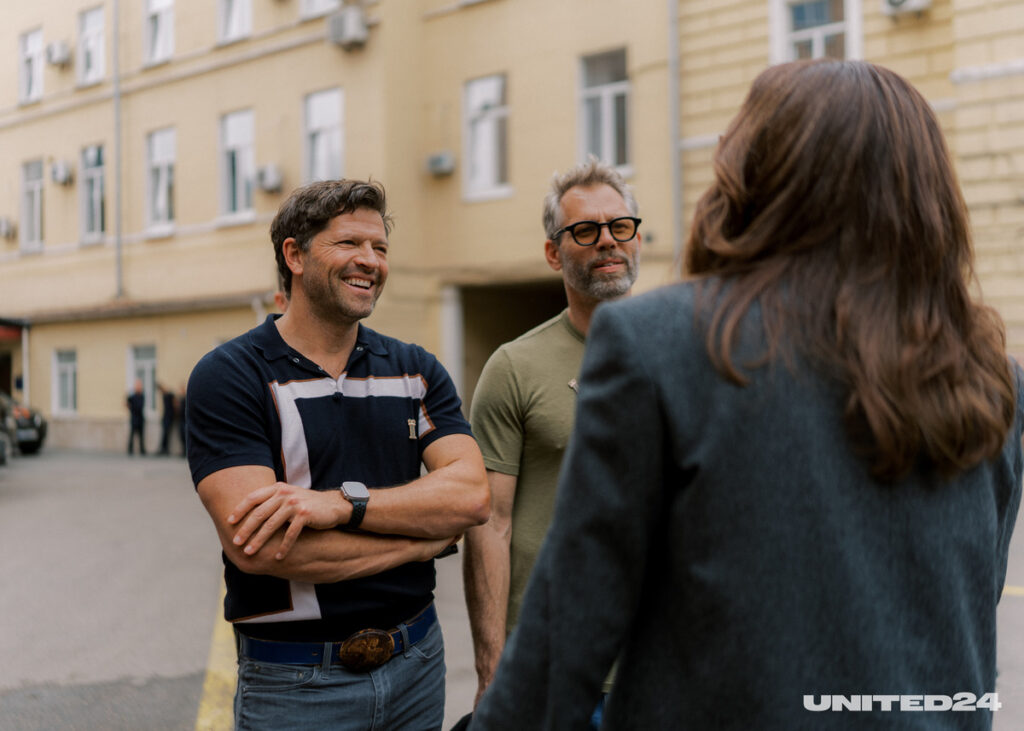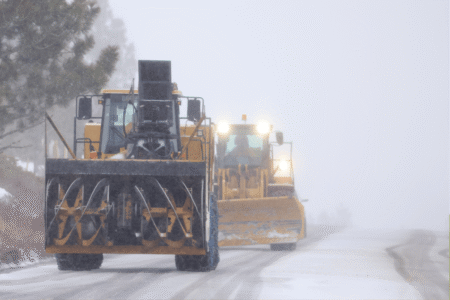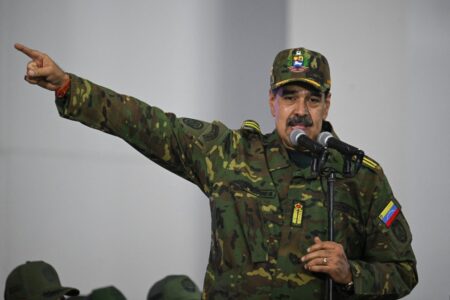Ukraine’s economy, and its ability to support its war effort against Russia, may be fatally compromised by extensive mining across the country, U.S. actor Misha Collins said, as Kyiv pushes for fresh funds for demining machinery.
The swathes of Ukrainian land contaminated with mines and unexploded devices are “paralyzing the economy” and ultimately “preventing Ukraine from recovering from the war,” Collins, a star of long-running U.S. drama Supernatural, told Newsweek during a visit to Kyiv focused on demining efforts.
“Ukraine has to keep functioning as an economy and as a society during the war, in order to support the war, in order to continue fighting off the Russian invasion,” said Collins, an ambassador for the government-backed United24 fundraising platform. “If they can’t do that, then the war is lost and also the Ukrainian culture is lost.”
Ukraine has become the world’s most heavily mined country. Almost one-quarter of the country—about 156,000 square kilometers, or just over 60,200 square miles—needs to be examined for demining efforts, according to United24. This is roughly equivalent to the side of the U.S. state of Georgia, the platform says.
“Hundreds of kilometres of minefields, millions of explosive devices, in some parts of the frontline up to five mines per square metre,” then-Defense Minister Oleksii Reznikov told The Guardian last August. Russia and Ukraine have laid mines intended to hamper the other’s operations in the war that began with the Russian invasion on February 24, 2022.
Collins is the face of a new United24 fundraiser, hoping to raise $450,000 for a new armored demining vehicle that the platform says can carry around 4,000 kilograms’ worth of explosives to a drop-off point, where they are then disposed of.
A senior United Nations official said this week that Ukraine will “require decades of clearance efforts.”
Demining equipment rarely attracts attention over the likes of flashy weapons systems, but Ukraine is adamant that efforts to root out explosives is a top priority. Funding and military aid from Kyiv’s Western allies, including the U.S., has included mine-clearing equipment. Ukrainian media reported this week that Kyiv is trialing a new unmanned ground vehicle intended to clear anti-personnel mines.
Ukraine has said mines, cluster munitions, traps and tripwires have been found in territory previously under Russian control, including in residential areas, public spaces and children’s toys. The new mine-clearing vehicle will contribute to humanitarian mine-clearance, Collins said.
Not only posing a risk to civilians, unexploded ordinance hampers Kyiv’s military operations. Last year, Ukrainian President Volodymyr Zelensky said the country’s summer counteroffensive against Russian troops got underway far later than planned—partly because of delays in Western military aid—and allowed Russia to heavily mine parts of Ukraine and slow Kyiv’s troops.
“Russian minefields are a serious obstacle for our troops, but not insurmountable,” Reznikov said in August.
Ukraine is also a major global exporter of grain, dubbed the world’s “bread basket.” Mines across the country mean that “there are so many farms that are rendered fallow and unusable,” Collins said.
Russia pulled out of a deal last summer that ensured the safe passage of grain cargo ships heading for, and out of, Ukraine, triggering further fears over international food security. Mines floating in the Black Sea have further jeopardized exports.
Food exports were a major earner for Kyiv and a key resource for many lower-income countries supplied by Ukraine.
Read the full article here














